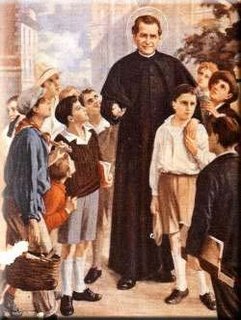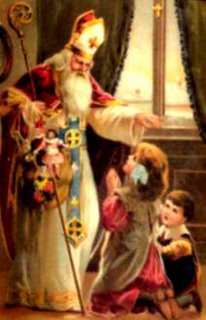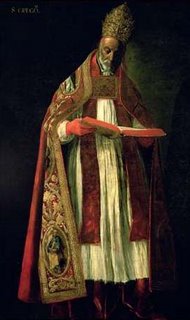
Not too many people have heard of the heroic Priest Titus Brandsma; let us take a more intimate look at this great man of Faith and courage, who lived the true meaning of living and dying for love of God and his fellow man.
Anno Brandsma was born in a little hamlet area of Friesland, Holland in the year 1881 on February 23; he was born into a very tight knit but loving family. His Mother was of an anxious nature and so was very protective of her family, as was his Father, Titus, who was also very proud of their Friesland heritage. Catholicism was not well embraced where the Brandsma family lived and so Titus as head of their home became involved in local politics as he tried hard to preserve their culture from modern intrusion.
But also apart from politics Titus, Anno's father made his living as a dairy farmer in that region of Holland, where he focused on producing milk and cheese to be sold. It was hard living with very few modern conviences, so all the children from early on were raised with a great work ethic as well as a strong Catholic Faith.
Anno attended the Franciscan school or 'gymnasium' at Megen, Holland, many of the students from this school like Anno would later enter the Priesthood. But Anno told others that he didn’t particularly like this school and preferred a more communal approach in living and studying their Faith and the schools other curricular activities.
Upon completion of his studies with the Franciscans, Anno Brandsma felt a calling to embrace the Carmelite Order; he entered the Carmelite Monastery in Boxmeer Holland in the year 1898, where he took his fathers name Titus as his religious name. From the beginning of entering the Carmelite Monastery, Titus showed an extraordinary gift for journalism and writing. Titus was ordained a Catholic Priest on June 17, 1905, and after further studies at the Roman Gregorian University, graduated on October 25, 1909 with a doctorate in philosophy.
Father Titus Brandsma spent his early Ministry in education where he joined the faculty of the newly founded Catholic University of Nijmegen in 1923. Because of Fr. Titus journalistic interests and gift of writing the Archbishop De Jong of Utrecht appointed Fr. Titus as spiritual advisor to the staff members of the more than thirty Catholic newspapers in Holland; this coincided with the more virulent and tyrannical presence of the Chancellor of Germany, Adolf Hitler! It didn’t take long for Fr. Titus to begin criticizing the new German Leadership.
When the Germans invaded Holland in the year 1940 then began the persecution of the Jewish people, upon this the Dutch resistance rose up to counteract the Nazi oppression. Also the Catholic Hierarchy announced that the Sacraments would be refused to Catholics who supported the Nazi occupation and it’s Regime!
During this difficult and most dangerous of times Fr. Titus Brandsma also became more involved in the Dutch resistance, making little effort to conceal his activities from the Nazi's. And it was his refusal and the Church's refusal to print National Socialist propaganda which infuriated the Nazi's. Especially as Fr. Titus also felt compelled to personally deliver to each Catholic editor a letter from the bishops ordering them not to comply with a new law requiring them to print official Nazi publications.
This proved to be too much provocation for the Nazi's and they arrested Father Titus on January 19, 1942; he was interned at Scheveningen and Amersfoort in Holland before being sent to Dachau, where he arrived on June 19, 1942.
Father Titus Brandsma's health was always a little fragile and he suffered periodically with kidney infections throughout the 1930's. So the brutal conditions at Dachau quickly saw his health decline rapidly. Fr. Titus had many times to visit the camp 'hospital' due to his health problems, which then enabled the Nazi's to use this Holy Priest for biological experiments!
But even though Father Titus was imprisoned at Dachau, these were not empty years, as Fr. Titus kept up his prolific abilities to write with deep and mystical meaning upon suffering, and also other holy works.
But unfortunately this Holy Priest health could not stand up to the brutal beatings, forced labour and the vile experiments upon his emaciated figure. Father Titus Brandsma a man and a Priest of Holy and Courageous countenance was killed by the Nazi's with a lethal injection on July 26th in 1942!
This was a Priest who lived a joy filled life even amidst the greatest evil; he is a testament to the Spirit of Love for God and his fellow man. He is a modern mystic, though many of his writings were lost during the years of the war what remained is Mystical Theology based on his own sufferings and that of the Church. Though he did not seek martyrdom yet he bowed with humility when it embraced him as one who is called to atone for the many. With a Christ like love he forgave his enemies and is a shining example of love conquering evil!
Titus Brandsma, 0. Carm. was declared Blessed by Pope John Paul, II on November 1985.
Copyright © 2007 Marie Smith. All rights reserved.



